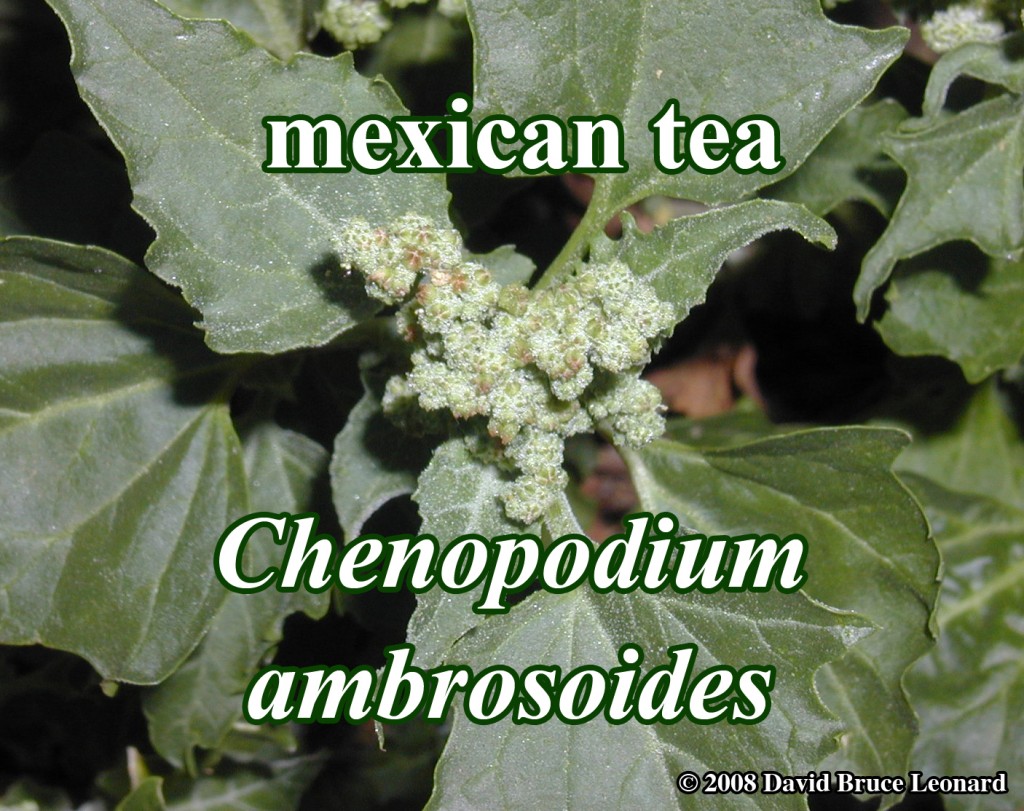Skip to content
Chenopodium ambrosioides
Plant name: Chenopodium ambrosioides
Family: Chenopodiaceae
Common names: Tu Jing Jie [China], Mexican Tea, Worm Seed, Worm Grass, Goosefoot [USA] Dungarachirombo [Zimbabwe] Rato Latte [Nepal] Simen Contra [Dominica, Trinidad] Herb a Vers [Guadaloupe] Paico [Aymara]
Properties: Acrid bitter fragrant slightly warm, toxic.
Part used: whole plant
Actions: Regulates menses. Stops pain. Release the exterior. Stops bleeding. Invigorates blood. Clears heat and poison. Clears postpartum blood stagnation. Insecticidal, antipruritic, expels worms, muscle relaxant, anthelmintic (makes worms unhappy), stomachic, carminative, analgesic, narcotic.
Uses:
-
Hookworm, roundworm, threadworm, ringworm, head louse [China, Maya, USA, Houma, Nepal, Caribbean, Tobago] Cholera in infants [Africa] {These treatments are often followed with a purgative}
-
Decocted for colic and stomach pain. [USA]
-
Cough and asthma.[USA] Fever [Creek]
-
As a “spring tonic” [Creek]
-
Poultice for headache [Houma]
-
Unwanted pregnancy [Mahuna] Late menses. Painful menstruation. [Africa]
-
As a wash, for hemorrhoids. [USA]
-
Decocted and topical for: Snake bite. [Catawba] Poisonous insect and spider bites [China]
Eczema, pruritus.[China]
-
Whole plant is thought to have wound healing properties. [USA]
-
Steeped in rum and drank for worms (Dangerous!) [Barbadous]
Combinations: With garlic and Portulaca oleraceae for parasites [Trinidad]
Preparation: For parasites use dried leaves, stem, seeds, add sugar and rice power to make pea-sized pills. Take 3 gm., twice daily.
Dosage: 5 fen – 1 qian
Caution: Chenopodium ambrosioides is poisonous and contraindicated in cases of neurasthenia, heart disease, peptic ulcer, and pregnancy. The use of the oil can lead to nervous system disorders, spasms, paralysis, and can cause death.
Notes: Volatile oil (up to 90% ascaridol, plus geraniol and methyl salicylate) and triterpenoid saponins. Ascariol is a powerful worm expellent. [EMP]



